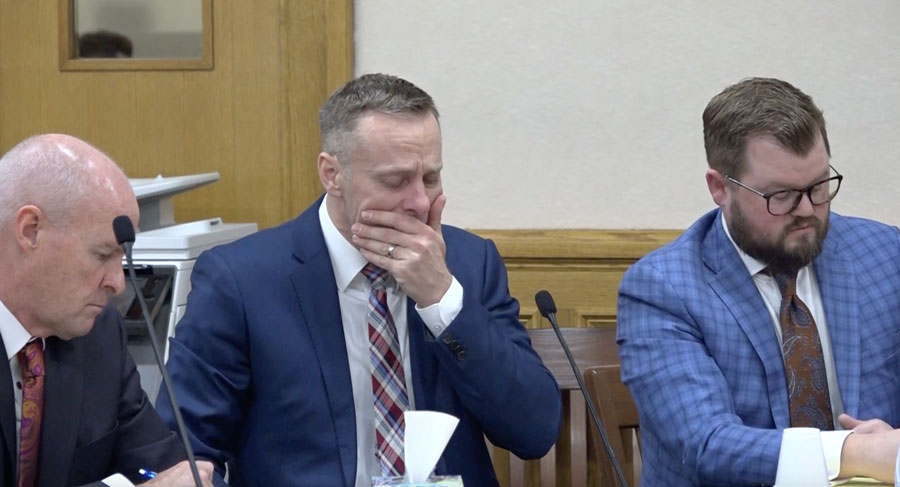Former city councilman convicted of sexual abuse tries to get his sentence reduced
The court reconvened on Thursday, months after the sentencing of Byron Wiscombe, a former Ammon city councilman convicted of lewd conduct with a child. He was seeking a reduction in his sentence.

Back in March, District Judge Dane Watkins Jr. sentenced Wiscombe to a prison term ranging from three to 33 years, following his guilty plea to felony lewd conduct with a child. Initially, the state had recommended a minimum of five years, but before sentencing, the prosecuting attorney, John Dewey, agreed to lower it to three years.
During the recent hearing, arguments were presented to Judge Watkins about the appropriateness of the 33-year maximum sentence and whether it should be reduced. Wiscombe was not present during the hearing, and Judge Watkins ultimately denied the motion to reduce the sentence.
Wiscombe’s defense attorney, Curtis Smith, had filed a motion on May 24 under Criminal Rule 35, which allows for the correction or reduction of an illegal sentence or a sentence imposed in an illegal manner, as well as corrections of court calculations for time served.
At the hearing, the victim of the case made a statement, reflecting on her traumatic experience and the relief she felt knowing Wiscombe would be imprisoned for 33 years, allowing her and her family time to heal. Smith argued that Wiscombe’s acceptance of the plea agreement spared the victim and her family from further trauma that a trial could have caused. He also mentioned that Wiscombe has been a “model prisoner” and actively seeks rehabilitation programs during his incarceration.
Bonneville County Prosecutor Randy Neal, however, argued that the original prosecutor made a mistake by accepting a plea agreement with a sentence that was too lenient for the severity of the crime. Neal emphasized the long-lasting damage caused by Wiscombe’s actions and stated that such severe cases should be treated with appropriate sentences.
Judge Watkins acknowledged the efforts of the attorneys in reaching the three-year fixed sentence but asserted that the severity of the crime could not be overlooked. He highlighted the impact on the victim’s life and recognized Wiscombe’s expression of anguish for his actions during the allocution.
In the end, Judge Watkins upheld the original sentence, recognizing the persuasive arguments made by both sides and his comfort with the three-year term, which was reached through a complex negotiation process.



